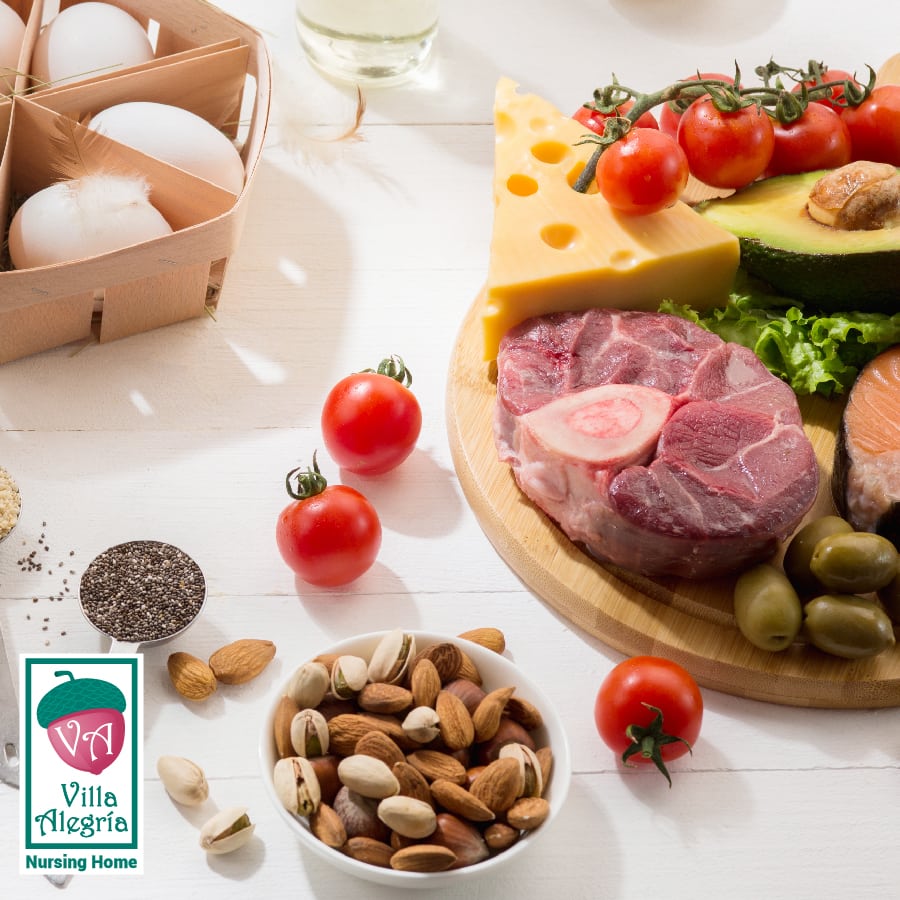
Complete Guide for Adequate Nutrition in Older Adults
Complete Guide for Adequate Nutrition in Older Adults
As we age, our nutritional needs change and become more important than ever. Proper nutrition in old age plays a fundamental role in the health and well-being of older adults. Good nutrition can help prevent chronic diseases, strengthen the immune system, and improve overall quality of life. In this article, we will explore the key aspects of proper nutrition for older adults and provide practical tips to help them stay healthy and active.

What should the Diet of an Elderly Adult be like?
I. Food quality: Choosing foods of high nutritional quality is essential for adequate nutrition in older adults. These are some points to keep in mind:
- Fruits and vegetables: Fruits and vegetables should be the basis of the diet. They are rich in vitamins, minerals, antioxidants and fiber, and help reduce the risk of heart disease, stroke and certain types of cancer. It is recommended to consume at least 5 servings a day.
- Whole grains: Whole grains, such as brown rice, quinoa, and oats, are excellent sources of fiber, B vitamins, and minerals. They help regulate intestinal transit and maintain a stable blood sugar level.
- Lean Proteins: Adequate protein intake is essential for maintaining muscle mass and preventing weakness. It is recommended to consume fish, poultry, legumes, eggs and low-fat dairy products. It is also important to vary your protein sources to obtain all the essential amino acids.
II. Essential nutrients: In addition to food quality, it is important to pay attention to essential nutrients that may be especially relevant for older adults:
- Calcium and vitamin D: These nutrients are crucial for bone health. Milk and fortified dairy products are good sources of calcium, while vitamin D is obtained primarily through sun exposure and some fortified foods. Consulting your doctor about the need for supplements is recommended.
- Vitamin B12: Vitamin B12 absorption decreases with age, so it’s important to make sure you get enough of this nutrient. It is mainly found in products of animal origin such as meat, fish, eggs and dairy products. Vitamin B12 supplements may be necessary in some cases.
- Omega-3 fatty acids: Omega-3 fatty acids have anti-inflammatory properties and help maintain good brain and cardiovascular health. Fatty fish, such as salmon and tuna, are excellent sources of omega-3s. In case of difficulty consuming these foods, fish oil supplements may be considered under medical supervision.
III. Healthy eating habits: In addition to choosing the right foods, older adults should adopt healthy habits for optimal eating:
- Have regular meals: It is important to maintain a regular meal routine to avoid skipping meals and maintain proper nutritional balance. Eat moderate portions at each meal and avoid overeating.
- Adequate hydration: Dehydration is common in older adults and can have negative health effects. Drinking enough water and fluids throughout the day is essential. If there are fluid restrictions for medical reasons, it is important to follow your healthcare professional’s recommendations.
- Reduce sodium and added sugar intake: Excess sodium can increase the risk of high blood pressure, while excessive consumption of added sugars can contribute to obesity and chronic diseases. Reading food labels and limiting your consumption of processed foods and sugary drinks is key.
IV. Adaptations according to individual needs: Each older adult is unique, and it is important to take into account individual needs and possible dietary restrictions. Some additional considerations may include:
- Chewing and swallowing: Some older people may have difficulty chewing or swallowing food due to dental problems or illness. In these cases, it may be necessary to adapt the texture of the food or use liquid nutritional supplements.
- Chronic diseases: Chronic diseases, such as diabetes, hypertension or kidney disease, may require a specific diet. It is essential to follow the recommendations of the doctor or nutritionist in these cases.
- Medications and supplements: Some medications can interact with certain foods or nutrients. It is important to consult your doctor or pharmacist about possible interactions and adjust your diet accordingly.

In summary, adequate nutrition in older adults is key to promoting good health and quality of life. Choosing foods of high nutritional quality, paying attention to essential nutrients and adopting healthy habits are fundamental aspects. Additionally, it is important to take into account individual needs and possible dietary restrictions. With the right advice and a balanced diet, older adults can enjoy a full and active life in their golden years.
2 thoughts on “Complete Guide for Adequate Nutrition in Older Adults”
Leave a Reply
You must be logged in to post a comment.
Wow, incredible blog format! How long have you been running
a blog for? you made running a blog look easy. The entire look of your site is
great, let alone the content material!
Thank you for your kind words. We’ve been blogging for a year, and we’re glad you find our site easy to navigate and visually appealing. Our goal is to provide valuable content, and we appreciate your feedback. If you have any suggestions, please feel free to share!